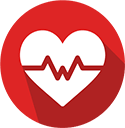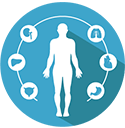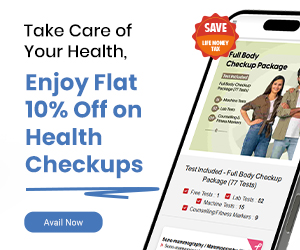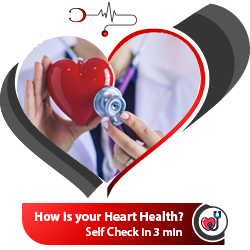Your Guide to Hypertension (High Blood Pressure)
Recurrent headaches, tingling in the ears and fatigue could possibly be symptoms of high blood pressure. Get yourself checked for this common health condition!
Hypertension or high blood pressure is becoming more and more prevalent amongst the urban Indian middle-class population. It’s important to know how it can affect one’s life.
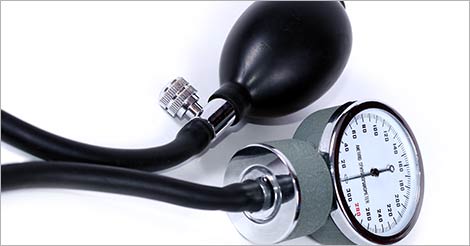
What is Hypertension?
Hypertension or high blood pressure refers to the high pressure exerted against the artery walls as the heart pumps blood.
Blood pressure readings are usually given as two numbers - 120/80.
The above number refers to the systulic pressure, which is the pressure in the arteries as the heart contracts and pumps blood into them.
The below number is called diastulic pressure, which is the pressure exerted in the arteries when the heart relaxes after the contraction.
Men and women both can fall prey to this ailment. Studies suggest there is a strong lifestyle correlation to this disease.
Blood Pressure Range
Normal blood pressure is 120/80.
Blood pressure between 120/80 and 139/89 is called pre-hypertension (where the person is most likely to get hypertension).
Blood pressure of 140/90 or above is high blood pressure.
Types of Hypertension
There are two forms of hypertension:
i) Essential or Primary Hypertension
This is more commonly found, but its actual causes are yet to be defined. However, genetics and unhealthy lifestyle plays crucial rule in this.
ii)Secondary Hypertension
When some other medical condition or medication is responsible to make the blood pressure rise, it is termed as secondary hypertension. Some conditions that may cause secondary hypertension are:
- Chronic kidney disease
- Over indulgence in alcohol
- Use of drugs like cocaine
- Diabetes, when it leads to kidney damage
- Thyroid disorder
- Some birth contrul pills as a side effect
- Appetite suppressants
- Medications for migraine
Risk Factors
A person is at a higher risk of getting high blood pressure if he:
- Leads a stressful life
- Lack a healthy diet and exercise routine
- Obese
- Consume high salt in diet
- Have diabetes
Symptoms of High Blood Pressure
Initially, in most of the cases, there are no symptoms. When symptoms begin to appear, they may include:
- Headache
- Buzzing in the ear
- Blurred vision
- Fatigue & confusion
- Irregular heartbeat
- Nosebleed (epistaxis)
Hypertension can lead to various complications and thus it is necessary to keep it under control. If you experience above mentioned symptoms and/or have a history of hypertension in your family, get yourself checked immediately.
Prevention of High Blood Pressure
Hypertension can be brought under control quite easily. Along with medication prescribed by the doctor, bringing in some lifestyle changes is essential.
- Cut down on salt
- and drinking
- Regularly exercise
- Eat healthy, limit junk & processed foods
Most importantly getting it frequently checked and going for regular preventive health checkups is the key to catch this apparently asymptomatic ailment, which may remain hidden for a long time and continue to cause harm inside the body.
Hypertension is a severe health condition, which if neglected could lead to complications; therefore, there should be taken care of from the initial stage. One should understand its symptoms and take necessary action immediately. A regular fitness checkup is recommended as it will keep you updated about your health and required precautions on priority. In case of further issues, contact us by filling out the following query form.


